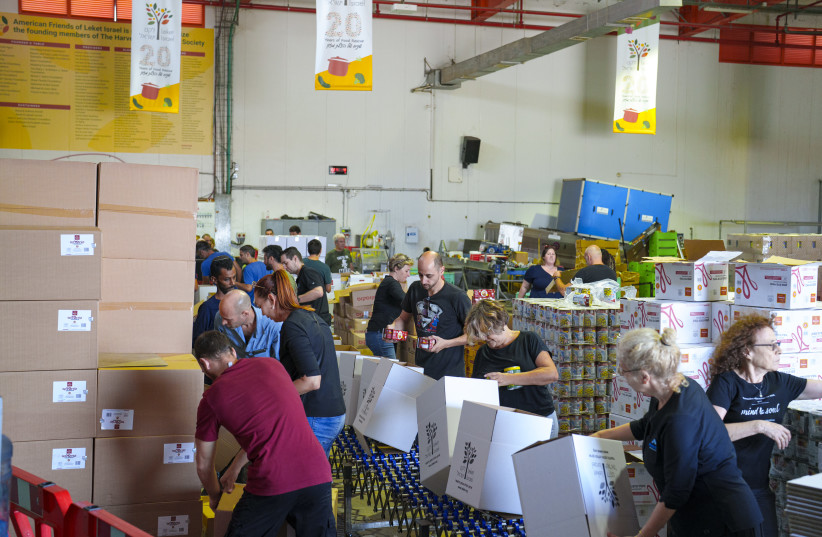As a result of the war and the current uncertainty, the families of military reserves and evacuated families, are suffering from food insecurity.
The number of people lacking adequate food for the Passover holiday and beyond is increasing, according to the voluntary organization Leket Israel.
Higher food prices, including fruit and vegetables, and economic damage, mainly to small, independently-owned businesses, have taken their toll.
The Hamas war in Gaza and with Hezbollah in northern Israel have resulted in a loss of about 40% of the industry workforce, a reduction of about 30% of the agricultural areas located in the Western Negev and the other border areas, and an increase of 60,000 tons of imported food.
Leket Israel also reports that the war in Gaza has exacerbated food insecurity among vulnerable populations due to a significant decrease in the volume of food provided to these communities as a result of damage to the agriculture sector.

Since the outbreak of war October 7, the organization has put much effort into supporting the Israeli agriculture community and the evacuees from the north and south. Additionally, it has dispatched nearly 100,000 volunteers to support farmers and assist in the provision of food to vulnerable Israelis throughout the country.
Working to help struggling Israelis
The organization’s director-general, Gidi Kroch, said on Monday that “during this challenging time, when Israeli farmers are facing existential crises directly impacting their livelihood and their customers and when thousands of Israelis have been displaced and many new people have joined the circle of poverty, food security is more important than ever. The data clearly emphasizes the social disparities that exist throughout the year but are even more apparent during the Passover holiday.”
Many people will mark the holiday around a sparse seder table, unable to ensure adequate food security for their families. Despite many proposals for an efficient and swift solution to the problem the government does not show a genuine interest in addressing this issue, he added.
“We will continue to work tirelessly to ensure that hundreds of thousands of Israelis will be able to celebrate Passover with dignity. We do this thanks to the generous donations from hundreds of farmers and cooked-food donors, along with nearly 100,000 volunteers who help us bring light and hope to those who need it most,” said Kroch.
Leket Israel – the National Food Bank – is the largest food-rescue organization in Israel. In routine times, it rescues fresh agricultural produce from farms and packing houses and cooked food from hotels, corporate cafeterias, and IDF army bases and distributes it to hundreds of thousands of Israelis in need each week through a network of nonprofit partner agencies.
